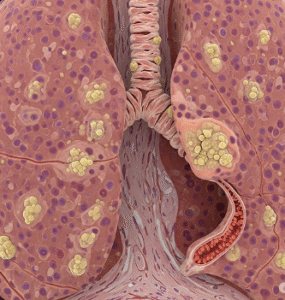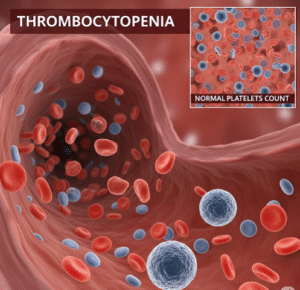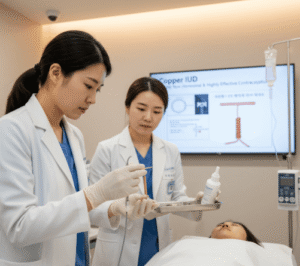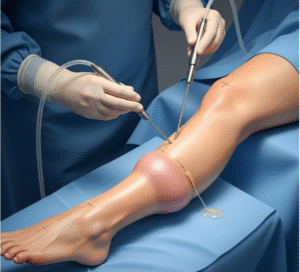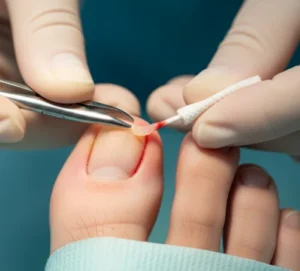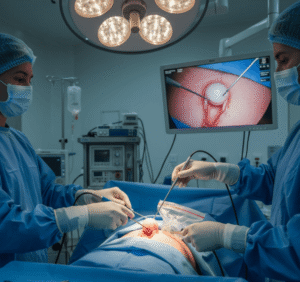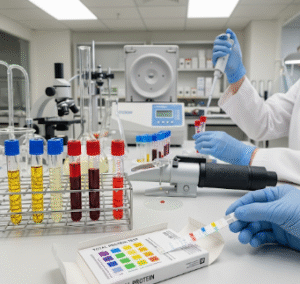Overview
Prodromal labor, sometimes called false labor, is a condition in which a pregnant woman experiences regular contractions that feel similar to true labor but do not progress to childbirth. Unlike Braxton Hicks contractions, which are usually irregular and painless, prodromal labor contractions can be strong, rhythmic, and even painful, often leading mothers to believe that labor has started.
This phase can last for days or even weeks before active labor begins. While prodromal labor is not dangerous for mother or baby, it can cause exhaustion, stress, and confusion.
In Korea, advanced maternity care ensures that women experiencing prodromal labor receive timely monitoring, reassurance, and supportive care, minimizing unnecessary hospital admissions while ensuring the safety of both mother and child.
➤ Prodromal labor feels like real labor but does not lead to cervical dilation.
➤ It can last for hours or days, then stop suddenly.
➤ Supportive care in Korean maternity clinics helps manage symptoms effectively.
Key Facts
➤ Can occur in the final weeks of pregnancy (usually from week 37 onward).
➤ Contractions may be regular, strong, and timeable, unlike Braxton Hicks.
➤ Does not result in cervical dilation or significant labor progression.
➤ Often stops and starts again, creating emotional stress.
➤ In Korea, obstetric clinics use ultrasound, fetal monitoring, and cervical checks to differentiate prodromal from true labor.
What is Prodromal Labor?
Prodromal labor is a preliminary stage of labor that feels very real but does not lead to immediate delivery. Unlike false contractions (Braxton Hicks), prodromal labor contractions are:
➤ Stronger and more regular than Braxton Hicks.
➤ May occur at the same time each day or night.
➤ Painful enough to mimic real labor contractions.
However, they do not cause the progressive cervical dilation needed for active labor. This can make the experience frustrating and confusing for expectant mothers.
What Symptoms Are Related To
Women experiencing prodromal labor may notice:
➤ Strong contractions (often rhythmic, lasting 30–60 seconds).
➤ Contractions that come and go in cycles (hours of contractions, then sudden relief).
➤ Back pain and pelvic pressure.
➤ Difficulty sleeping due to nighttime contractions.
➤ Emotional stress and fatigue from repeated “false starts.”
What Causes / Possible Causes
The exact cause of prodromal labor is not fully understood, but several factors may contribute:
➤ Body’s Preparation for Labor
➤ The uterus is “practicing” for childbirth.
➤ Muscles and ligaments are stretching and aligning the baby.
➤ Baby’s Position
➤ If the baby is posterior (back-to-back) or not yet engaged, contractions may occur without cervical changes.
➤ Pelvic Anatomy
➤ Some women’s pelvic shape may contribute to prolonged pre-labor contractions.
➤ Hormonal Fluctuations
➤ Rising levels of oxytocin and prostaglandins may trigger contractions that don’t yet result in true labor.
➤ Stress or Fatigue
➤ Emotional and physical strain can sometimes intensify prodromal symptoms.
When Should I See My Doctor
It can be difficult to distinguish prodromal labor from real labor, so it’s important to consult a healthcare provider if:
➤ Contractions become stronger, closer together, and do not stop with rest.
➤ There is vaginal bleeding, fluid leakage, or sudden gush of amniotic fluid.
➤ Decreased fetal movements are noticed.
➤ Severe abdominal pain or pressure that feels different from usual contractions.
➤ You are less than 37 weeks pregnant and experiencing contractions (possible preterm labor).
Care and Treatment
Prodromal labor does not require medical intervention in most cases but supportive care is essential.
➤ Home Care & Self-Management
➤ Rest when contractions subside.
➤ Stay hydrated, as dehydration can worsen contractions.
➤ Warm baths or heating pads for muscle relaxation.
➤ Gentle stretching, yoga, or breathing exercises.
➤ Change positions frequently to help the baby engage properly.
➤ Medical Support
➤ In Korean hospitals, doctors use ultrasound and fetal monitoring to ensure baby’s safety.
➤ Cervical checks help confirm whether true labor is progressing.
➤ Pain management options may be provided if contractions cause significant discomfort.
Treatment Options in Korea
Korea is known for its high-quality maternity and obstetric care, and prodromal labor is managed with both reassurance and close monitoring.
➤ Obstetric & Gynecology Clinics
➤ Detailed fetal heart monitoring and ultrasound to differentiate real vs. prodromal labor.
➤ Cervical dilation checks for accurate diagnosis.
➤ Hospital-Based Maternity Care
➤ 24/7 access to labor and delivery units in case labor progresses suddenly.
➤ Safe observation for both mother and baby without unnecessary interventions.
➤ Postnatal & Supportive Services
➤ Korea’s famous postpartum care centers (산후조리원) also provide prenatal education and stress reduction programs.
➤ Holistic & Complementary Therapies
➤ Prenatal yoga, meditation, and acupuncture are widely offered for pregnant women experiencing discomfort from prodromal labor.


